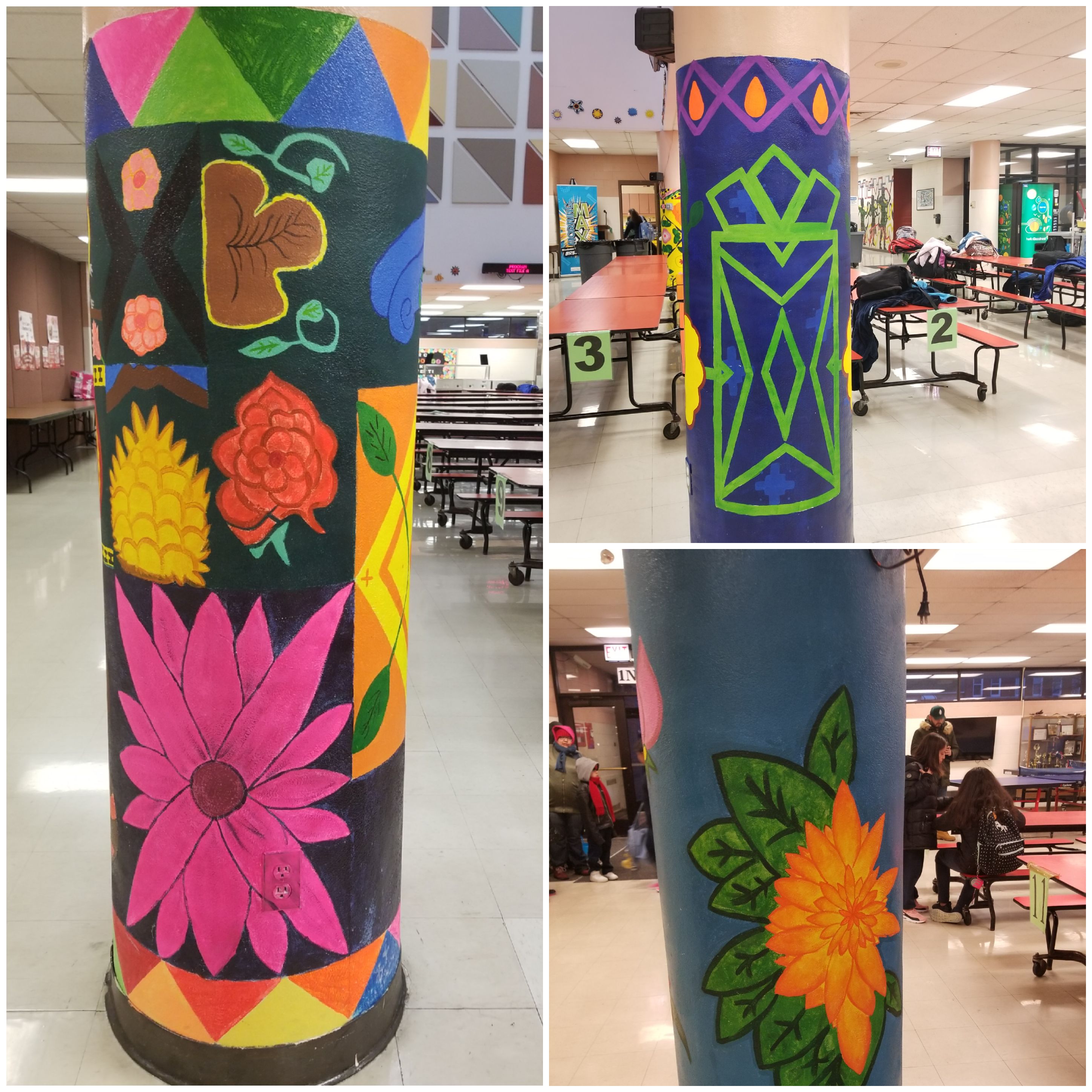News from the Field: RISE 21st CCLC — Using the Arts to Foster Family Engagement
The Resources Invested in School Enrichment (RISE) 21st CCLC program at the Frida Kahlo Community Organization (FKCO) celebrates students, their families, and the community. Ann Marie Rios, FKCO’s director of education, explains: “Students are encouraged to value who they are as individuals and discover the talent within through exploration of self, family, and community, both locally and globally.” This focus is a natural extension of FKCO’s mission to serve greater Chicago’s Latino community in the areas of immigration services, education, health, and leadership development. Because of this focus, family engagement is central to the 21st CCLC program’s activities.
Many of RISE’s activities offer a way for students to explore and celebrate their heritage. Through baile folklorico (traditional Mexican dances) and mariachi music, the primarily Latino student population learns dances and music. They also learn the histories and traditions of these artforms and how they are currently practiced. The classes and community performances provide a venue for students and their families to discuss cultural traditions. In addition to student performances, afterschool sites have hosted family and community events that celebrate students’ culture. One such example is a fiesta guerrera, where students prepared and served food from the Mexican state of Guerrero. Events such as this one have enabled students and their families to spend time together while guests learn about community and culture.
 |
|
|
Parent-created murals adorn the pillars in the lunchroom of Perez Elementary School, one of the sites of RISE 21st CCLC. |
The RISE team offers several ways for families to become familiar with the 21st CCLC and its different enrichment programs so that they feel comfortable participating. For example, one site invited families to the STEM (science, technology, engineering, and mathematics) camp offered over spring break. The 21st CCLC also hosts a family gathering where sites showcase students’ talents for families and friends. The event provided hands-on activities like printmaking, STEAM (STEM plus arts) activities, and dance classes. Events like these help family members learn about and experience the program for themselves.
The RISE program also offers activities just for family members. Many of the classes offered for families reflect the vision of the 21st CCLC through their emphasis on community artists and culture. For example, multiple sites have brought in local artists to provide mural classes for students. The culmination of the classes has been a permanent mural on display at the school where the 21st CCLC site operates. The RISE team has gone on to provide mural classes to families, and participants at some sites have also proudly contributed to their school’s decor. At Perez Elementary, for example, parents created murals on pillars in the building that remain on display. RISE team members have found that the combination of classes and supportive community keep family members coming back. “Parents have really come to enjoy the time creating their pieces of art and having the time to share in conversation with other parents,” says Rios.
The 21st CCLC staff expand and adapt classes based on participant interests and skill development. Recently, RISE offered technology classes for parents. The classes included instruction and practice on writing using word processing software, and on conducting internet research. As participants became more proficient in these skills, instructors extended the writing program as a journalism class, with parents creating a weekly newsletter for the site. Also in response to parent interests, the 21st CCLC offers a combination book club and printmaking class.
To build relationships with families, the RISE team works hard to establish communication with parents, keeping them up to date on activities and student progress, but also seeking and truly listening to family input on programming. Rios cites the book club-printmaking class as an example of programming that reflects family input and the RISE team’s willingness to listen to feedback. The 21st CCLC team had considered offering ESL (English as a second language) classes, but parents showed a stronger interest in literacy classes and visual arts. The 21st CCLC now offers the classes at three sites, and staff is excited that parents gave feedback and are participating. “We have come to know and build relationships with the parents, so they feel comfortable sharing what they like and dislike [around activities],” says Rios. “In doing so, we have been able to adjust or change class offerings and family events to reflect what the parents want and need.”
The RISE team has learned that keeping an open mind and listening to families are essential to family engagement. “Never underestimate the skillsets or interests that parents may have,” says Rios. “Always maintain the lines of communication open with your families.”
